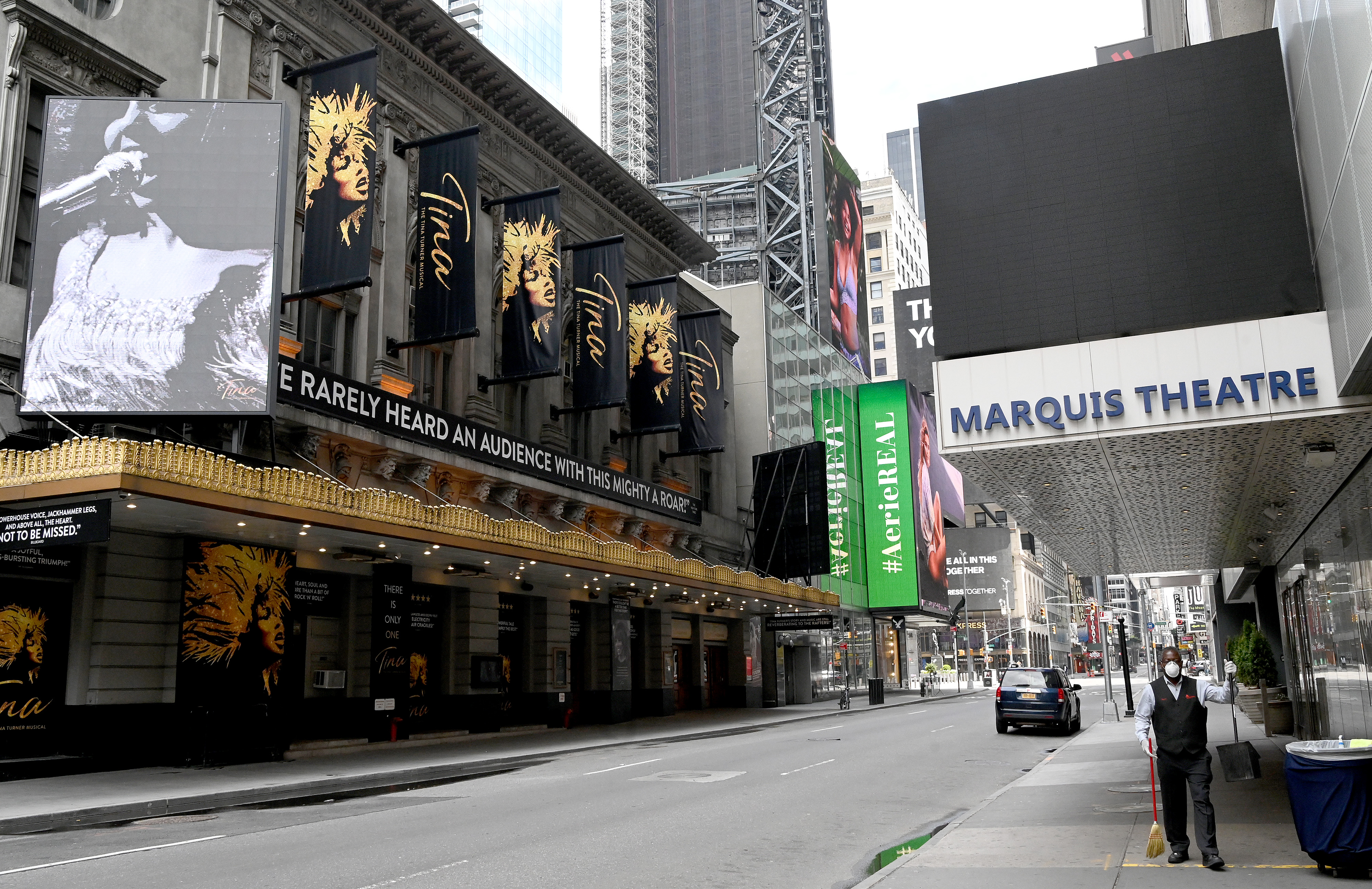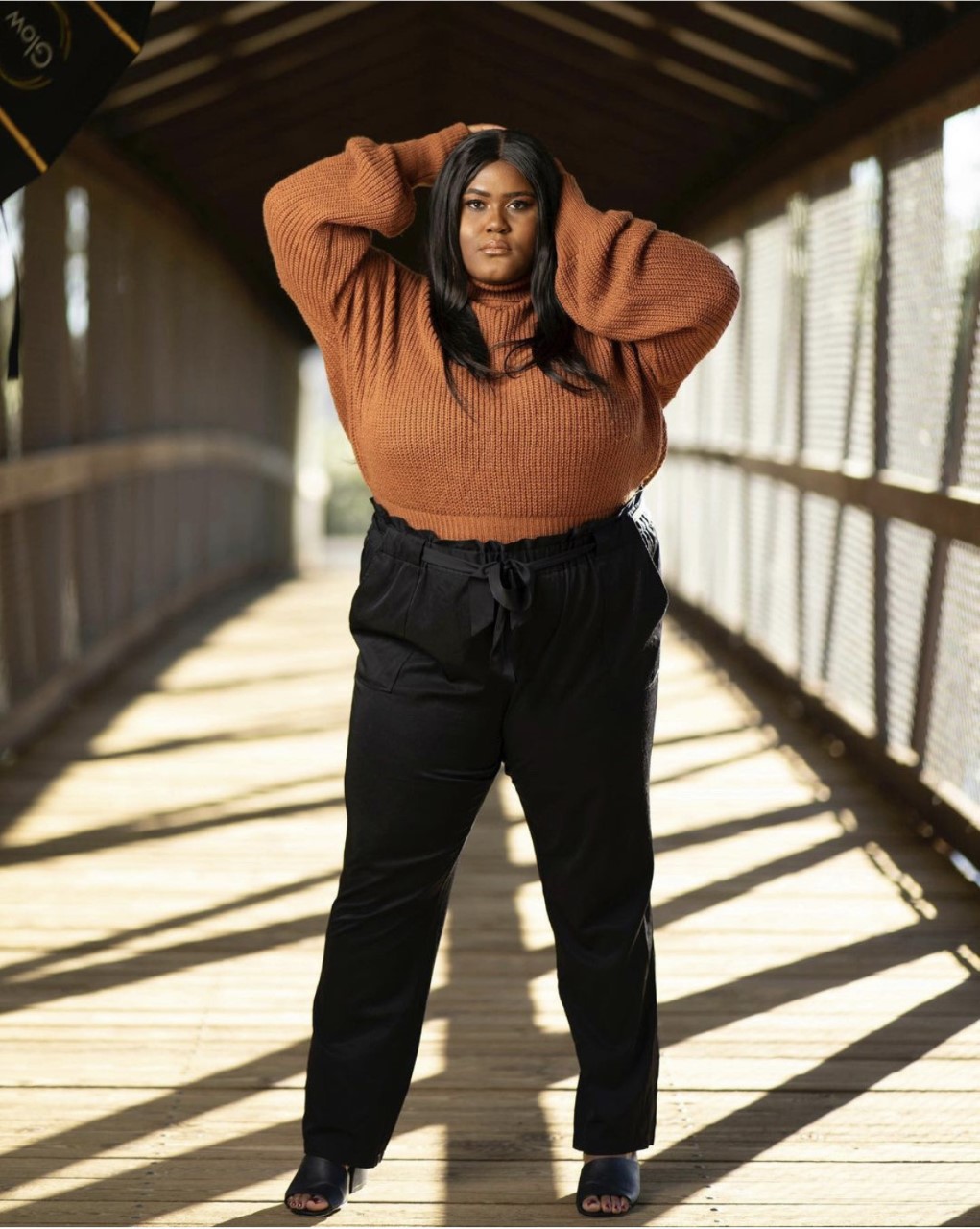

Satori Folkes-Stone graduated from the University of Southern California in 2019 and immediately moved across the country to New York City to perform in Broadway’s West Side Story. Years of training prepared her for this moment and in an instant, she found herself without the one thing she’d worked so hard for. “I had my dream job,” she says. “I’ve worked towards this my whole life and I succeeded. The only reason I’m not doing that job right now is because of a pandemic. It was rough to come down from the glitter of it all.”
Over a year ago, essentially all live theaters closed. And within those 14 months, the theater industry faced a blackout they’d never planned for. At its core, live theater is meant to be shared with an audience. Actors use the energy from the crowd as a tool to create the best show. The pandemic took away their audience, making the inside of their homes their only listeners. And while breaking the “fourth wall” isn’t common, the lack thereof left many actors feeling lost. “[Theater closing] felt like my breath had been taken away,” Alexandria Thomas says. “The art I create and the art that I absorb feels like the air I breathe and it felt like someone was slowly – if not abruptly – cutting off my oxygen supply. I was no longer able to thrive through my creativity because I no longer had collaboration. And in a time where there’s a virus spreading, there is no collaboration allowed. So that was the biggest strike to the core of me as a creator.”
The pandemic universally forced everyone into their homes. With more leisure time than they’d ever been used to, actors and performers found comfort in embracing the unknown. In a fast-paced industry constantly bustling toward your big break, a chance to find stillness helped many creatives realize their journey isn’t insular. “I think the greatest thing I discovered in this is that it’s not a sprint,” Kayla Zanakis, 22, says. “Your career is a long winding journey, and there’s gonna be moments where you’re kind of plateauing, and that’s okay.”
Historically, the arts have been undervalued within school systems. When the pandemic first hit many art programs saw a regression in funding due to varying allocation issues. Similarly, many artists saw the contradictory disregard for performance theater when its usage became everyone’s main pastime while quarantined. “I don’t know if people still value the arts, even though we’ve gone through this pandemic,” Camille Thomas says. “I think people still value film and television, but theater is still undervalued. I hope when we come back the industry will realize – and people as a whole will realize – how valuable theater is because we’ve been without it for so long.”
Governor Andrew Cuomo announced this week that live theater, including Broadway, can resume May 19. The Broadway League decided that they will still plan for a fall reopening on September 14 at 100% capacity, which means for many actors auditions are set to begin this summer. Maria Bilbao, 22, graduated from The American Musical and Dramatic Academy (AMDA) in February of 2018 and luckily gained an equity card — meaning she is a member of the Actors’ Equity Association (or AEA for short), an American theater group that represents stage actors — shortly after. Her first big gig came a few months later in the regional production of On Your Feet. At 20 years old, Bilbao led her first production – as Gloria Estefan – giving her the necessary confidence boost it takes to be in a demanding industry. “I just cannot wait for the day to be in a rehearsal room with my castmates and make magic on stage again,” Bilbao says. “Coming out of the pandemic and back into the flow of things, I see how much more serious I feel in the trajectory of my career. [The pandemic] gave me a lot of time to sit with myself. I’ve had so much more time to take classes and and not be so caught up in the day-to-day hustle of New York City. I’ve been able to slow down and really decide for myself what I want, who I want to be, what roles I want to play and how I see myself.”
Unlike Bilbao, many recent graduates are non-union actors and upon their return to the city must face the daunting task of auditioning for an equity card. As COVID-19 guidelines slowly change, many non-union productions have opened for the summer season giving much-needed exposure to younger actors. Annalisa Noel currently stars in the play Life is a Dream at the Gene Frankel Theatre. The 24-year-old assumed she’d feel nerves about performing again, but it all came back like muscle memory. “I felt like [my first performance] would be this big come to Jesus moment, but as soon as the show started, and we were all in front of an audience it felt so normal,” she says. “It just felt like home and nothing was surprising about it. Every night I get to show up and live in my imagination for a couple of hours in front of a bunch of strangers and that is exciting.”
And while many early-career actors are thrilled about the reopening, there’s still so much uncertainty surrounding their profession. “There’s a lot to take in and I’m just trying to figure out what the future is going to look like. It definitely will be different from what I imagined it to be,” JaVonda Carter, a 2020 graduate of Florida A&M University, says. “I think things are pushed back a little bit more and my five-year dream board is now maybe a 10-year dream board.”
A lot of recent graduates never got a chance to fully dive into their career before the pandemic, so reopening news feels intimidating. Alexandria Thomas lost a piece of her identity when the industry shut down. She had to reevaluate so many parts of herself, putting performing on the back burner. And with all the excitement of Broadway’s return, she’s nervous to immerse herself back into acting. For the 22-year-old it’s almost as if she’s learning how to ride a bike again. “I won’t even lie, I’m terrified,” she says. “I’ve lost more than a year of being able to establish myself in New York. How am I going to compete? How am I going to number up? Am I still the same artist I was when I first moved here? I don’t feel like it. I am very rusty in my technique and my rehearsal because it’s been so painful for me to think and even apply theatre physically. But, it’s so important to remind myself that it’s okay that I’m not as far as I thought I would be during this time. Along with the world, I too, have been on pause.”
The pandemic changed many young people’s career trajectories in extraordinary ways. For many recent college grads, life resembles nothing of which they thought it would. Live theater may be opening up, but because of these drastic life changes, some young actors are no longer creating expectations for their next steps. Whether it was financially, emotionally, or physically, the pandemic affected people’s plans and simultaneously created new ones.
“Out of all of the disastrous events this year, I am very thankful for where I am right now,” Sherrod Taylor, a 2020 FAMU graduate, says. “I’m working on myself in all aspects. And yes, I am still doing theater, but right now I’m just going where life takes me. I’m not rushing to get to New York City because throughout this pandemic I found things to value more in life than theater. This is very new for me. I’ve stepped out of being in theater always and found love in other things. And I’m not saying I’m giving up on it. I’m just letting God take his course. I’m gonna let him be my Lyft driver while I’m in the backseat.”














